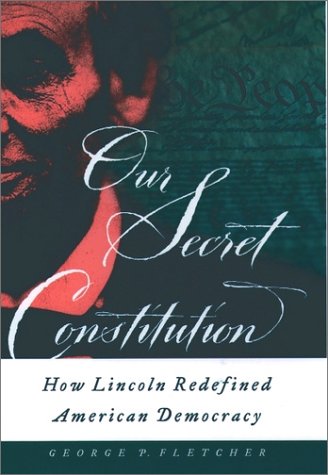
Americans hate and distrust their government. At the same time, Americans love and trust their government. These contradictory attitudes are resolved by Fletcher's novel interpretation of constitutional history. He argues that we have two constitutions-still living side by side-one that caters to freedom and fear, the other that satisfied our needs for security and social justice.
The first constitution came into force in 1789. It stresses freedom, voluntary association, and republican elitism. The second constitution begins with the Gettysburg Address and emphasizes equality, organic nationhood, and popular democracy. These radical differences between our two constitutions explain our ambivalence and self-contradictory attitudes toward government.
With September 11 the second constitution-which Fletcher calls the Secret Constitution-has become ascendant. When America is under threat, the nation cultivates its solidarity. It overcomes its fear and looks to government for protection and the pursuit of social justice. Lincoln's messages of a strong government and a nation that must ""long endure"" have never been more relevant to American politics.